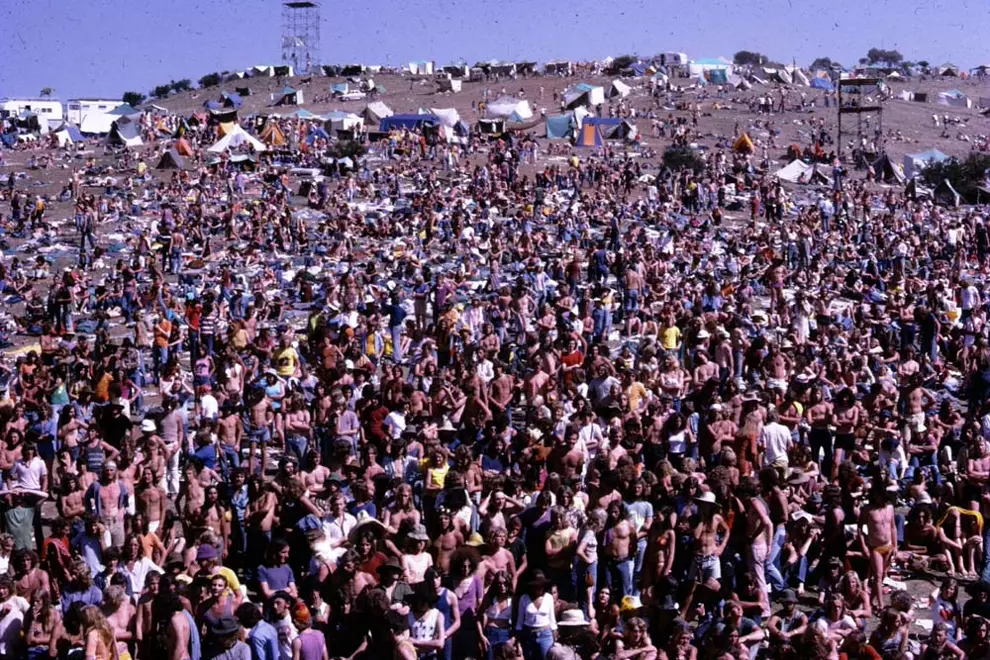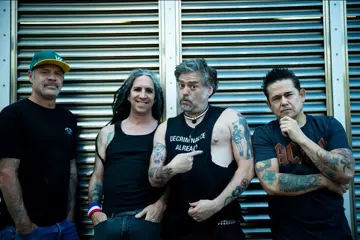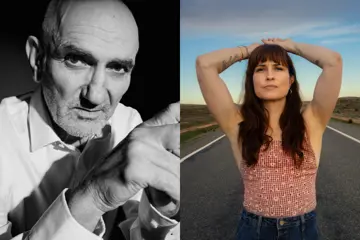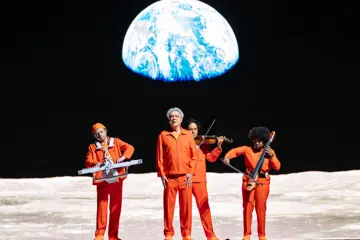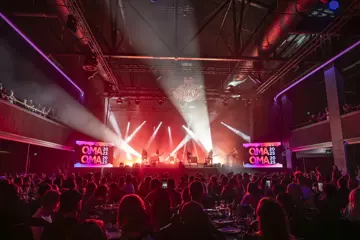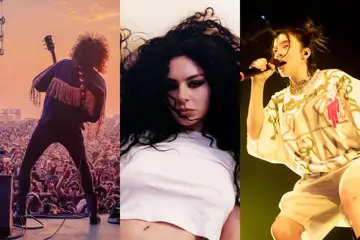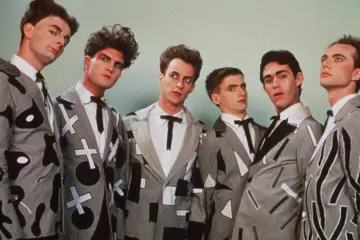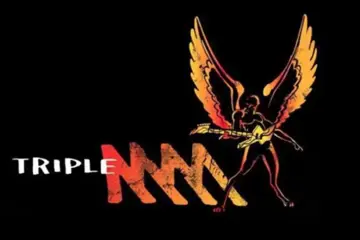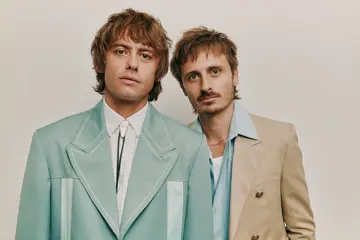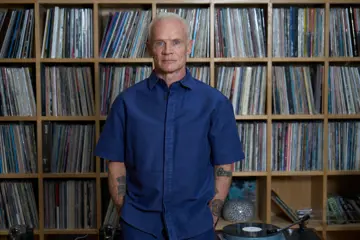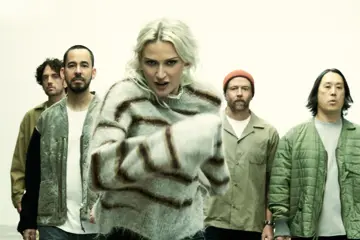This year marks the tenth year of The Age Music Victoria Awards (formerly The Age EG Awards). As part of the celebrations, a voting panel comprising former inductees, musicians and music professionals were given the responsibility of selecting ten worthy representatives from Victoria's illustrious musical heritage for induction into 2015's The Age Music Victoria Hall Of Fame. And they decided to shine the spotlight on AC/DC, Bill Armstrong, The Thunderbirds, John Farnham, Olivia Newton-John, Palais Theatre, Archie Roach, Stan Rofe, The Seekers and Sunbury Festival.
Sunbury Festival was founded by John Fowler and Jim McKay, both GTV9 employees, who came together as Odessa Promotions, which organised and promoted these events. "Television is always a team effort and, of course, we transferred that into running a festival," Fowler explains. "We had lots of very capable people, professional people, from accountants and lawyers and all those sort of people that you don't realise [are required] at an event."
Although often likened to its legendary Stateside festival cousin, Woodstock, Sunbury Festival is also widely acknowledged for ushering out the hippie era in this country and heralding in the pub rock scene. The festival is also regarded as the forerunner to Big Day Out since it was held across the Australia Day long weekend during its four-year reign (1972 - 1975). Fowler stresses that Sunbury certainly focused on "Australian music for Australians" and its first year featured an all-Australian line-up.
"Television is always a team effort and, of course, we transferred that into running a festival."
Queen were famously heckled and booed at Sunbury in 1974, which makes a little more sense when you consider the festival's patriotic origins and Australia Day focus. Does Fowler think the Sunbury massive's unwelcoming reception had to do with Queen's postcodes? "Yeah," Fowler hesitates before sharing details as to why international bands were booked for Sunbury after the inaugural festival: "That was a suggestion by the agency that was handling some of the bookings and we were advised that we would be wise to have an international act at the time, just to give it a bit of a draw card. And that's exactly what we did."
Don't miss a beat with our FREE daily newsletter
When asked whether Sunbury Festival organisers encountered any unexpected red tape leading into the first event, Fowler offers, "The CFA [Country Fire Association] at the time — not the local branch, but the main CFA — they were very, very concerned about fire problems in the area... They caused us a lot of trouble; they took out ads in the paper and so on at the time warning people not to go." Thankfully, the Sunbury organisers "had gathered" a management team who specialised in negotiation, these issues were quickly resolved and Sunbury was greenlit.
"Our first year was the highlight from the point of view of how everybody reacted and so on," Fowler recalls. Although the festival wasn't due to open for Friday night entertainment in 1972, he remembers the talent took to the stage anyhow: "Billy Thorpe couldn't wait to get on the stage; it was all quite incredible... And all the bands got up and jammed 'til about three o'clock in the morning."
It's not just the first Sunbury Festival that's historically relevant and Fowler opines, "The amazing thing was that a lot of people grew out of that festival." A relatively unknown Molly Meldrum compèred the first Sunbury Festival and was there as a reporter for Go Set, so his interviews were captured on film by a documentary crew. Some of this footage captures Meldrum enquiring of a completely naked female (side note: Meldrum was allegedly straight at the time), "What sort of made you sort of just get up and shed your clothes like this?" Then Paul Hogan compèred Sunbury in 1973. "Paul was very good, but he was very, very nervous," Fowler illuminates.

Michael Gudinski's Mushroom Records is another Sunbury success story and the label's first album release was Sunbury 1973 - The Great Australian Rock Festival (a three-disc set of live recordings from the 1973 festival). Fowler admits the ongoing legacy Sunbury has left behind gives him a sense of pride and confirms, "[Gudinski] certainly produced a record and I think that's where the name, Mushroom Records, came from."
An Aussie rock'n'roller that Fowler believes was propelled back into public favour after his Sunbury Festival appearance is Johnny O'Keeffe: "He made a big comeback from Sunbury. He actually got booed when they announced him and he walked out on stage, but within two or three minutes he had them absolutely jumping." It sounds like Sunbury attendees tended to be enthusiastic with their booing. Fowler chuckles, "Oh, you got sections of the crowd that, you know, if it wasn't their type of music, they'd certainly let you know it."
Legend has it, Skyhooks were booed off the Sunbury stage in 1974, after which singer Steve Hill left the band and was replaced by the charismatic Graeme "Shirley" Strachan. The band returned to perform at the festival the following year and their set was regarded by many as a highlight. "It sounds as though you probably know more about that side of it than we do," Fowler laughs.

